What People are Saying
These two important and timely volumes in Eros & Psyche: Existential Perspectives on Sexuality are part of a sea of change in views about sexuality within professional psychology. For decades, mainstream perspectives were implicitly—and sometimes explicitly— pathologizing of non-normative sexual orientations, desires, and behaviors. As these authors demonstrate, existential scholarship is uniquely positioned to shift the undercurrents of these views and to contribute to new understandings of the full spectrum of human sexuality. In doing so, the authors explore the meanings of human sexuality through all its nuances, ineffabilities, and complexities. At the forefront of a new era, this book will be of great value to practicing clinicians, scholars, and researchers alike.
Sarah Kamens, PhD, Editor-in-Chief, Journal of Humanistic Psychology; Editor, Reconceptualizing Schizophrenia: The Phenomenology of Urhomelessnes
Eros & Psyche: Existential Perspectives on Sexuality are two volumes that address erotic-sexual experiences through the lens of humanistic-existential psychological theory. These texts span philosophical and clinical issues on sexuality and a plurality of lived experiences of sexual attraction and pleasure, eroticism, gendering, as well as spirituality and religiosity regarding sex and desire—quite a feat, and such a joy, as the works are infused with exemplary scholarship to boot! What I like most of all is the recognition and affirmation of our diverse and embodied sexuality that these volumes inspire and, in doing so, provide an elucidation on a critical aspect of our lives that is often lost within jokes and euphemisms, ignorance, normative taboos, and, at times, covered over with guilt or shame. The works are perfect for undergraduate and graduate courses designed to address contemporary issues regarding the psychological life of human sensuality, attraction, sexuality, and love.
Robert McInerney, PhD, Professor of Psychology, Point Park University
Applying philosophical, spiritual, and clinical perspectives, Eros and Psyche explores the powerful, pervasive, collective, experiential, and existential reach of sexuality. The two volumes of Eros and Psyche are replete with evocative prompts for contextualizing and advancing the phenomenology of sexuality. The clinical insights offered are derived from serious consideration of the vulnerable subject matter and are generative sources for reflection on practice in the therapy room and in “the bedroom.” The influential thinking in Eros and Psyche will evoke rich discussion on the intersections of worldview, identity, spirituality, and sexuality for years to come—as such, Eros and Psyche is set to be a seminal text on the expansiveness of sexuality for existentialists.
Luis Vargas, PhD, Full Professor, Regis University
Acknowledgments
Introduction by Stephen W. Simpson
Philosophical & Theoretical Perspectives
Chapter 1: Phenomenology in the Bedroom: How Martin Heidegger and Michel Foucault Could Reinvigorate Your Sex Life by Joel Vos
Chapter 2: A Functionalist Approach to Understanding Gender and Sexuality: Reconciling Tensions between
Humanistic and Queer/Trans Theories by Heidi Levitt, Kathleen Collins, & Zenobia Morrill
Chapter 3: The Erotic in Anesthetic Culture: Revisiting Rollo May’s Concept of “The New Puritanism” by Brent Dean Robbins
Chapter 4: Sexuality and the Arts: Implications for Existential Psychologists by Stanley Krippner, Callum E. Cooper, & Steve Speer
Chapter 5: Growth through Regret: Existential Freedom, Sexuality, and Responsibility by Sara K. Bridges & L. Chandler Batchelor
Chapter 6: Eros and Shame: A Theoretical Autoethnography on Group Work and Masculinity by Micah Ingle
Chapter 7: Sexuality, Sex, or Love? by Digby Tantum
Index
About the Contributors
About the Editors
Chandler Batchelor, MA, holds a BA in psychology and comparative literature and an M.A. in health humanities, both from the University of North Carolina at Chapel Hill. She is currently working toward completing a PhD in counseling psychology at the University of Memphis. Her clinical interests include trauma work and identity exploration. Her research interests include asexuality, mental illness identity, and how individuals come to adopt certain identity labels to make sense of themselves and navigate their world. Her work has been published in the Journal for Sex and Relationship Therapy and on Emory University’s peer-reviewed Neuroethics blog.
Sara K. Bridges, PhD, is the Co-Director of Training and an associate professor of Counselling Psychology at the University of Memphis. Dr. Bridges is also the co-director of the Coherence Psychology Institute and a certified trainer and supervisor of Coherence Therapy. She is a recipient of the distinguished Teaching Award for the University of Memphis and an active scholar of constructivism and sexuality. Dr Bridges has co-edited the five-volume Studies in the Meaning series. She is a past president of both the Constructivist Psychology Network and the Society of Humanistic Psychology (Division 32 of the American Psychological Association). Dr. Bridges is also a licensed psychologist in Tennessee and New York with a distance based private practice.
Kathleen M. Collins, PhD (she/her), earned her doctorate in clinical psychology from the University of Massachusetts Boston. She has published numerous articles and book chapters related to qualitative methods, psychotherapy process, and mental health concerns of sexual and gender minority individuals. She currently specializes in providing affirmative psychotherapy to sexual and gender minority clients at Psychology Specialists of Maine.
Callum Cooper is a Chartered Psychologist with the British Psychological Society (BPS) and a Fellow of the Higher Education Academy (HEA), holding postgraduate degrees in psychology, social science research methods and education, from the University of Northampton, Sheffield Hallam University and Manchester Metropolitan University. He has a long-time association with the University of Northampton and is based there as a senior lecturer in psychology, delivering classes and conducting research on Death and Bereavement, Positive Psychology, Human Sexual Behaviour, Parapsychology, and Research Methods.
Micah Ingle is a PhD Candidate in Psychology: Consciousness and Society at the University of West Georgia. His recent work addresses individualism and neoliberalism in the practice of psychology, as well as the ameliorative potential of group work. More broadly, he is interested in human science-oriented psychology, liberation psychology, critical masculinities/gender theory, and Continental philosophy—particularly phenomenology, hermeneutics, and poststructuralism. Micah works for Mad in America where he covers research exposing the underside of mainstream psychology and psychiatry. He is also passionate about teaching, where he tries to balance issues of social justice and cultural context with experiential pedagogy grounded in humanistic psychology.
Stanley Krippner, PhD, has held faculty appointments at Akamai University, Fordham University, Kent State University, New York University, Saybrook University, Sofia University, and the California Institute for Integral Studies. He has received lifetime achievement awards from the Parapsychological Association, the International Association for the Study of Dreams, and the Society for Humanistic Psychology. Krippner is a Fellow of the American Psychological Association, which granted him its 2002 Award for Distinguished Contributions to the International Development of Psychology. He is co-author of the award-winning book Personal Mythology, and co-editor of the award-winning book Varieties of Anomalous Experience and has published over 1,000 peer-reviewed articles.
Heidi M. Levitt, PhD (she/her), is a Professor in Psychology at the University of Massachusetts Boston. She is Incoming Editor for Qualitative Psychology and has been an Associate Editor for the journals Psychotherapy Research and Qualitative Psychology and is a past-president of the Society of Qualitative Inquiry in Psychology. An advocate for pluralistic methodologies, she chaired the development of the SQIP recommendations for reviewing and designing qualitative research and of the qualitative and mixed methods APA journal article reporting standards. Her research programs focus on psychotherapy research, with a focus on clients’ experiences and therapists’ intentionality, on LGBTQ+ gender identities and communities and on healing from stigma-related events. In addition to her research, Dr. Levitt teaches students to conduct experiential therapies and is a licensed psychologist. She adopts an integrative approach to psychotherapy and intervention development rooted in constructivist, humanistic, and feminist-multicultural orientations but drawing on psychodynamic and cognitive-behavioral conceptualizations.
Zenobia Morrill, PhD, is an Assistant Professor in the Clinical Psychology Department at William James College. Her research interests include critical and liberation psychology, psychotherapy, qualitative methods, and decoloniality. She also serves as the Senior Research Associate of the Psychology Humanities and Ethics Center at Boston College; fellow of the American Psychoanalytic Association; and as a board member of the Society for Theoretical and Philosophical Psychology (STPP) and the Society for Qualitative Inquiry in Psychology (SQIP). She is an Editorial Board Member for the Psychology and the Other Book Series and the Journal of Humanistic Psychology.
Brent Dean Robbins, PhD, is Professor of Psychology and Director of the PsyD program in Clinical Psychology at Point Park University in Pittsburgh, PA. He has a doctorate in Clinical Psychology from Duquesne University. He is a former President of the Society for Humanistic Psychology (Division 32 of APA), and has served on the Executive Board of the Society for General Psychology (Division 1) and Society for Theoretical and Philosophical Psychology (Division 24). Dr. Robbins is a Fellow of the American Psychological Association, and recipient of the Carmi Harari Early Career Award (Division 32). He is author of The Medicalized Body and Anesthetic Culture: The Cadaver, the Memorial Body, and the Recovery of Lived Experience (2018, Palgrave Macmilan).
Steve Speer is a researcher operating out of New York City.
Digby Tantam, PhD, is Emeritus Professor of Psychiatry and University of Sheffield, visiting professor of psychology at Middlesex University and a director of the Existential Academy. He is a group analyst, and has published books on autism, neurobiology, psychotherapy, public health and emotional well-being amongst other topics.
Joel Vos, PhD, CPsychol, FHEA, is a psychologist, philosopher, and therapist. He works as a Senior Researcher and Senior Lecturer at the Metanoia Institute in London. He is Director of IMEC International Meaning Events and Community. Dr Vos has published over 160 articles and chapters. His recent books include The Psychology of COVID-19 (Sage, 2021), The Economics of Meaning in Life (University Professors Press, 2020), Mental Health in Crisis (Vos, Roberts & Davies, Sage, 2019), and Meaning in Life: An Evidence-Based Handbook for Practitioners (Bloomsbury, 2019). His forthcoming books include Doing research in psychological therapies: a step-by-step guide (Sage), and COVID-19 and Beyond: Psychological, Existential and Therapeutic Perspectives on mental health and meaning (Vos, Russo-Netzer & Schulenberg, University Professors Press). Dr Vos’ recent research focuses on clinical trials, systematic reviews, meta-analyses, and building evidence-based conceptual models of humanistic and existential therapies, meaning in life, social movements, critical psychology, and social justice. Read more on his personal website: https://joelvos.com.
Stephen W. Simpson, PhD, is a psychologist and Associate Professor in the School of Psychology and Marriage and Family Therapy at Fuller Theological Seminary. He has published a number of articles and books, including What Women Wish You Knew about Dating: A Single Guy’s Guide to Romantic Relationships, Assaulted by Joy: The Redemption of a Cynic, and Single Sex Stories: Tales of Unmarried Sexuality and Faith.
Melissa Racho, PhD, is a Licensed Psychologist in private practice at The Racho Group in Colorado Springs, CO. Using a dynamically informed, existential framework, she provides individual therapy to adolescents and adults, and conducts psychological evaluations for Service Members and Veterans. Dr. Racho serves on the Rocky Mountain Humanistic Counseling and Psychological Association’s Continuing Education and Training Committee, and in addition to her work in private practice, she founded the Denver Society for Creative Philanthropy. She loves poetry, writing, and hiking, and lives in the mountains with her two young sons.
Brent Dean Robbins, PhD, is Professor of Psychology and Director of the PsyD program in Clinical Psychology at Point Park University in Pittsburgh, PA. He has a doctorate in Clinical Psychology from Duquesne University. He is a former President of the Society for Humanistic Psychology (Division 32 of APA), and has served on the Executive Board of the Society for General Psychology (Division 1) and Society for Theoretical and Philosophical Psychology (Division 24). Dr. Robbins is a Fellow of the American Psychological Association, and recipient of the Carmi Harari Early Career Award (Division 32). He is author of The Medicalized Body and Anesthetic Culture: The Cadaver, the Memorial Body, and the Recovery of Lived Experience (2018, Palgrave Macmilan).
Louis Hoffman, PhD, is a licensed psychologist in private practice and the Executive Director of the Rocky Mountain Humansitic Counseling and Psychological Association. An avid writer, Dr. Hoffman has edited over 20 books and 100 journal articles and book chapters. He has been recognized as a Fellow of the American Psychological Association and six of its divisions (1, 10, 32, 36, 48, 52), and he is a recipient of the Rollo May Award of the Society for Humanistic Psychology. Although Dr. Hoffman left fulltime academia to pursue private practice, writing, and nonprofit work, he continues to teach at the University of Denver, University of Colorado at Colorado Springs, and Saybrook University. You can find out more about Dr. Hoffman at www.louis-hoffman.com.
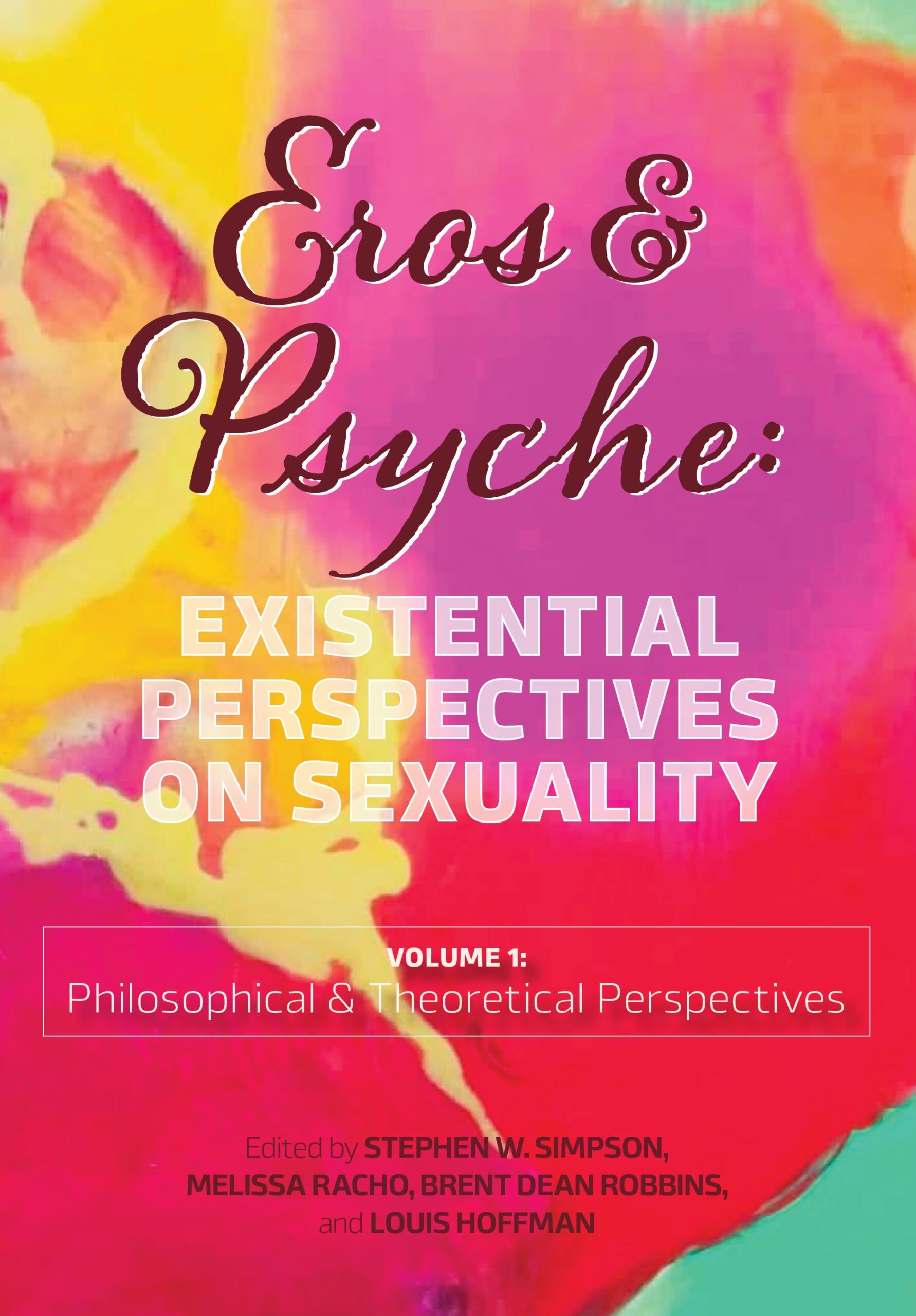
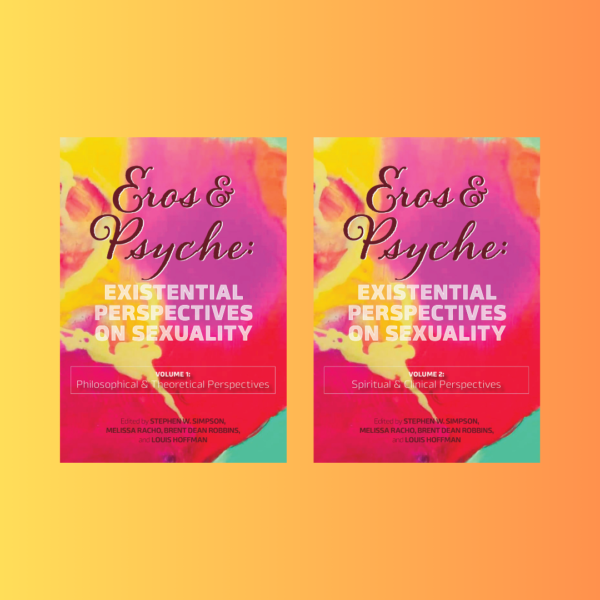
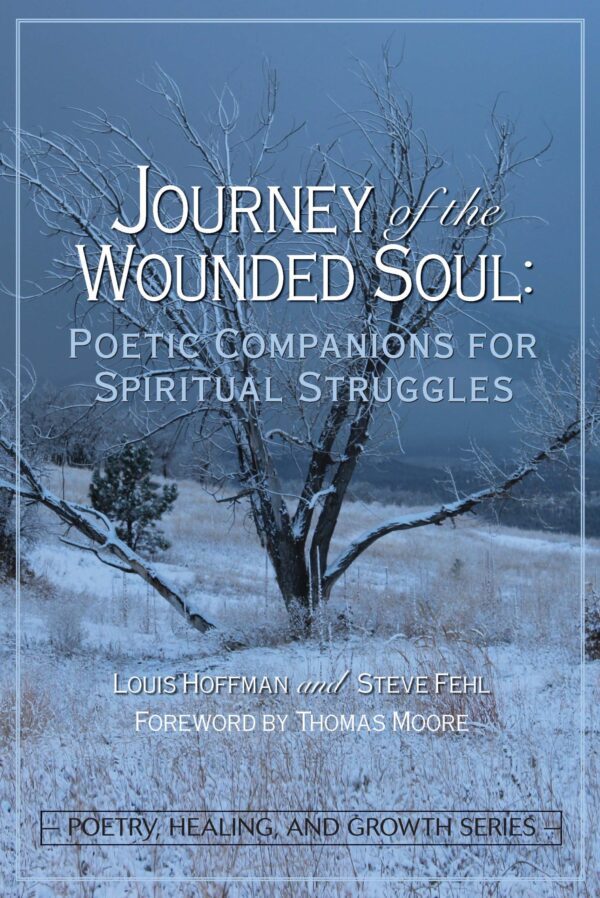

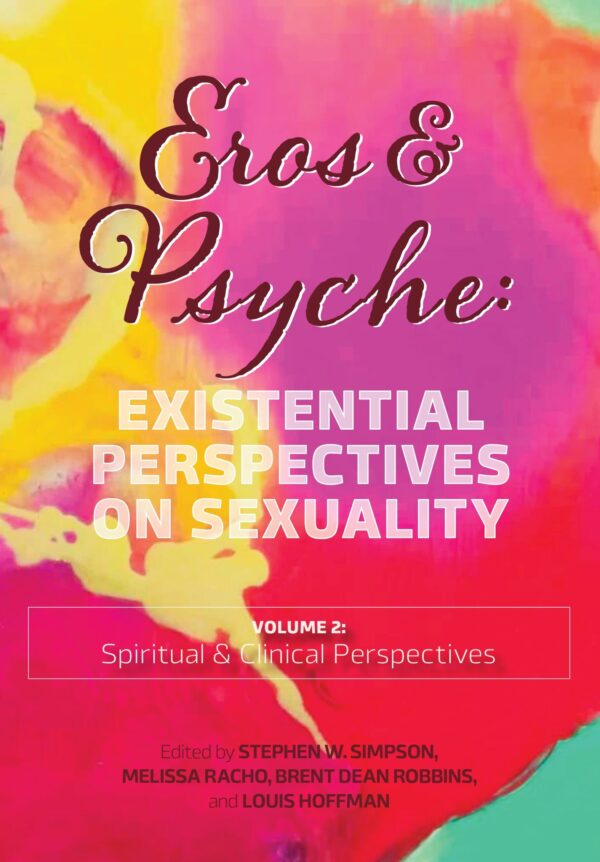
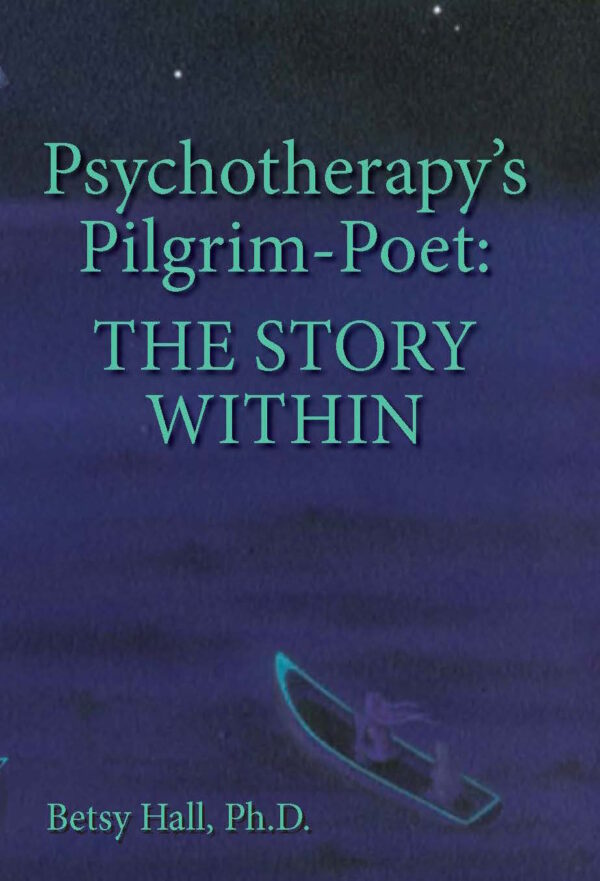


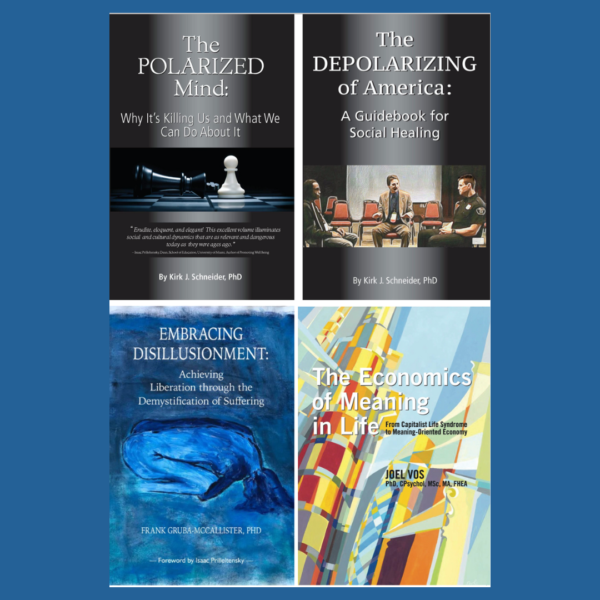
Reviews
There are no reviews yet.